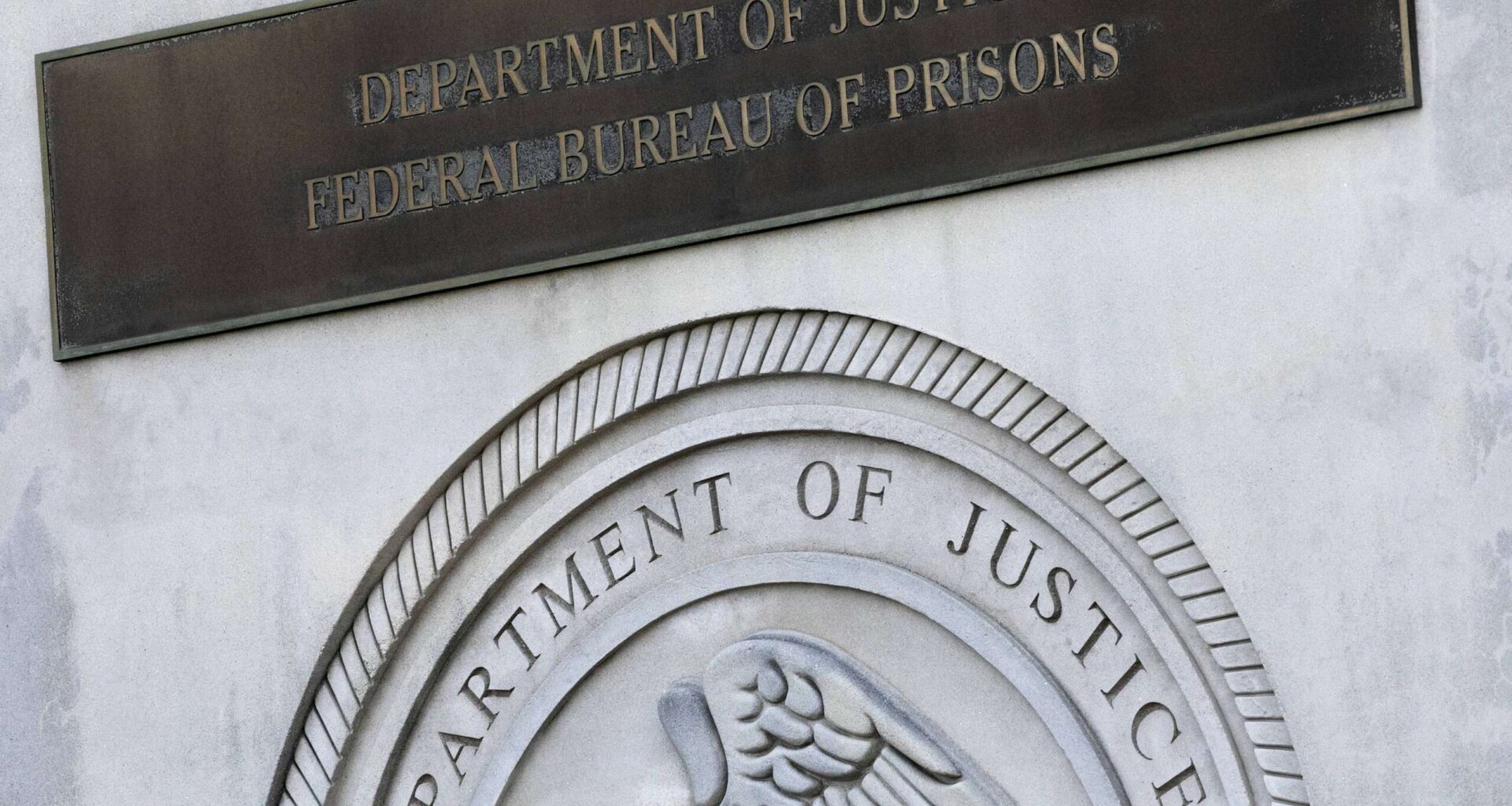Over 30,000 federal correctional officers have lost their collective bargaining abilities, after the Federal Bureau of Prisons announced Thursday evening that it was ending its union contract with the American Federation of Government Employees, “effective immediately.”
The agency’s announcement comes in response to executive orders from President Donald Trump, directing most agencies to cancel their union contracts and terminate collective bargaining for broad swaths of federal employees.
Although Trump’s initial orders made use of a narrow legal provision that lets a president suspend collective bargaining for national security purposes, BOP’s announcement made no direct mention of national security. Instead, BOP Director William K. Marshall III said the agency was ending the agreement because it believed collective bargaining was a “roadblock” and that the union contract had become “an obstacle to progress instead of a partner in it.”
“It’s time for change,” Marshall said in the message to BOP employees Thursday evening.
]]>
Without the collective bargaining agreement, Marshall said officer safety still remains a priority, and that neither employee pay, leave and benefits — nor civil service protections — will be impacted. Employees will not be removed, suspended or demoted without cause and due process, the agency message states.
“[The union contract] didn’t give you your protections, the law did, and Bureau policy continues them,” Marshall said. “This isn’t about taking things away, it’s about giving you more. The whole purpose of ending this contract is to make your lives better.”
The now-canceled contract between BOP — an agency within the Justice Department — and AFGE was initially expected to last until May 2029. Brandy Moore White, president of the AFGE Council of Prison Locals, expressed fears that the loss of union protections for correctional officers will exacerbate already consistent understaffing at BOP, as well as other major workforce challenges.
Earlier this year, BOP reduced, and in some cases fully removed, retention-based pay incentives for thousands of correctional officers, which AFGE warned would lead to further staff attrition. In May, the agency also froze some of its hiring efforts, citing budget issues, which the union said led to an increase of overtime hours for employees.
“With pay already not comparable, morale already low, it’s just going to be devastating,” Moore White said.
As BOP employees lose their collective bargaining abilities, Moore White also raised concerns about an erosion of workplace protections and officer safety. AFGE had recently negotiated with BOP to provide officers in higher security facilities with more safety equipment, according to Moore White. The now-rescinded union agreement also included provisions on work schedules, annual leave, uniform allowances and officer equipment.
BOP declined to comment further on the union’s concerns about safety, instead pointing to Thursday’s message stating that safety remains a priority and that the agency is adhering to its “legal obligation to provide a safe and secure workplace.”
]]>
Following the union contract termination, federal correctional officers have also lost their ability to negotiate grievances or use the arbitration process in instances of workplace disputes.
“When we don’t have grievance procedures to go through arbitration, every single individual will be responsible for carrying their issues to a court,” Moore White said. “And that’s not what anybody needs.”
John Zumkehr, president of AFGE Local 4070, which represents officers at the Thomson federal correctional institute, pointed to the possibility of the agency’s actions increasing what he said is an already high risk of suicide for BOP employees. His union chapter recently launched an initiative attempting to combat suicide of federal correctional officers.
“When you strip away the protections we’ve fought for, you endanger the well-being of every officer and undermine the entire system,” Zumkehr said. “Instead of standing behind us, the Bureau is tearing down the few safeguards we have left.”
BOP is one of several agencies moving forward with suspending collective bargaining, after an appeals court in August granted the Trump administration’s request to stay a preliminary injunction that had been preventing agencies from implementing Trump’s anti-union orders. Various lawsuits against the administration, however, remain ongoing. AFGE has alleged that Trump’s orders are an unlawful form of retaliation for federal unions’ First Amendment protected speech.
While many agencies have proceeded with “de-recognizing” their unions, the rationales for canceling contracts have varied. Similar to BOP, for instance, the Department of Veterans Affairs did not mention national security in its announcement. Instead, VA leaders said they were ending contracts because unions “have repeatedly opposed significant, bipartisan VA reforms and rewarded bad employees for misconduct.”
On the other hand, agencies including the U.S. Citizenship and Immigration Services and the Federal Emergency Management Agency directly cited national security in their messages announcing union contract terminations.
Following the latest announcement from BOP Thursday evening, Moore White said many correctional officers have reacted with anger.
“The vast majority of our members are Republicans and voted for this president. I literally cannot explain to you how many messages I’ve gotten from them saying this is such a slap in the face,” Moore White said. “This man vowed to protect law enforcement, and this is what we get in return. They just feel so blindsided and so frustrated with how this is going.”
]]>
The AFGE Council of Prison Locals is looking into “every legal and legislative option possible” in response to the agency’s actions, Moore White said. That includes the possibility of additionally suing the Trump administration, on top of the already overarching lawsuit that AFGE filed earlier this year.
If you would like to contact this reporter about recent changes in the federal government, please email drew.friedman@federalnewsnetwork.com or reach out on Signal at drewfriedman.11
Copyright
© 2025 Federal News Network. All rights reserved. This website is not intended for users located within the European Economic Area.
